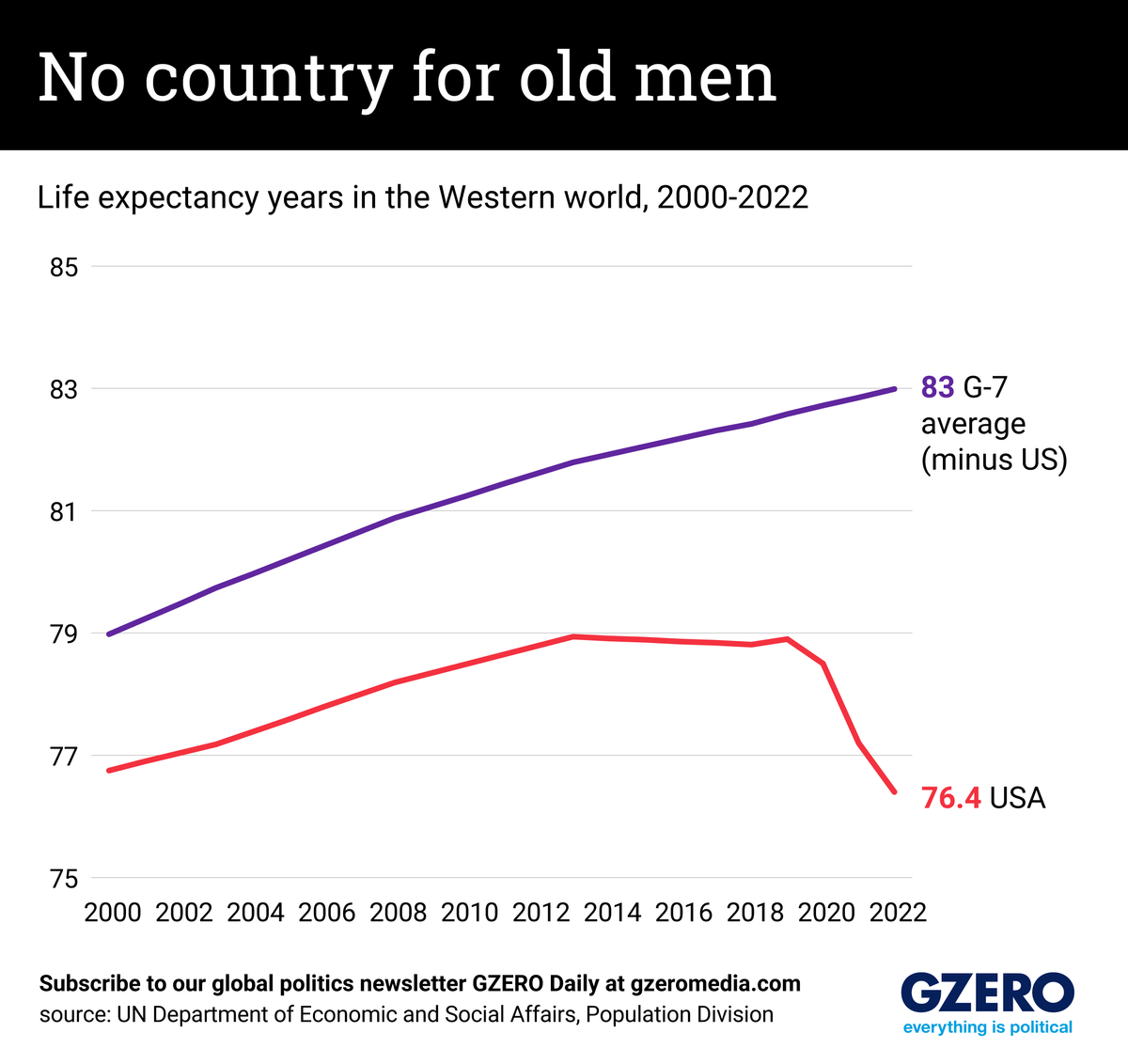US life expectancy has declined two years in a row, meaning that babies born today are expected to live about 2.5 years less than those born in 2019, according to the CDC. Americans on average will now kick the bucket at 76, the lowest age in the 21st century — and more than six years earlier than the rest of the G-7.
The biggest contributor to Americans’ shortening life spans is drug overdoses, especially from fentanyl. The pandemic — and the mental health crisis that ran alongside it — is also to blame. The US saw more COVID deaths than other G-7 nations, while fatalities from suicide and alcohol-induced liver failure skyrocketed. Many of these deaths were of young people, which has a compounded effect on the national average.
While COVID took a toll on life expectancy across the G-7, all but the US rebounded after the first year. The US knocked off a whopping 1.3 years in life expectancy between 2019 and 2020 and has continued to slide. The speed of America’s decline marks the biggest two-year drop in life expectancy since 1921.
The common wisdom is that wealthier countries should enjoy higher life expectancies than poorer ones, as they have the resources to invest in healthcare and better standards of living. This rings true for the rest of the G-7, which have a combined average life expectancy of 83 years old. But the US — the only G-7 country without free national healthcare — has lagged behind throughout the 21st century, plateauing at 78 in 2008 while fellow G-7 nations continued to climb.
We compare US life expectancy to the G-7 average (minus America) since 2000.

















